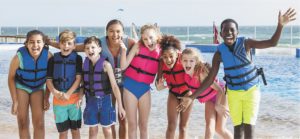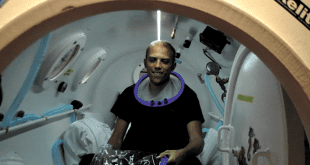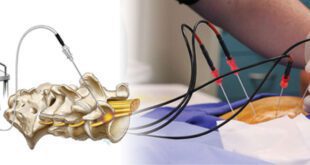Pediatricians, Dr. Nicole Conde and Dr. Mercedez Cruz
 Keeping children safe is a task that should never be taken lightly, but with the year-round warm days in Florida, outdoor safety is relevant all year long.
Keeping children safe is a task that should never be taken lightly, but with the year-round warm days in Florida, outdoor safety is relevant all year long.
No matter the age of your child, taking them outdoors or letting them play sports or ride their bicycles chaperoned or on their own is a little unnerving, but spending time outdoors is a healthy way to stay active and enjoy well-needed fresh air. Let’s start with heat and sun precautions for kids.
Sun and Heat Safety
Sun protection is critical for all ages. With high heat indexes and damaging UV rays, limiting exposure to the sun and heat is essential. We should avoid going outdoors during peak hours, which are between 10:00 am and 4:00 pm. If you are out during those times, try to find a shady area and limit physical activity. Wearing a hat, lightweight, long sleeve clothing, and sunglasses are beneficial for sun protection.
Sunscreen
A broad protection sunscreen should be applied 30 minutes before heading outdoors and reapplied every two hours. Sunscreen is not recommended for children under six months of age, but a minimal amount can be applied to the cheeks and back of hands if necessary; however, it’s best to keep babies in a shady, cool area. For example, if you are pushing them in a stroller, keep a lightweight cover over the stroller to avoid direct sunlight. Make sure it’s not too hot for them, as getting overheated can be extremely dangerous.
Heat Exhaustion
We’ve had warm temperatures throughout the past few months; on average, and with spring and summer on the way, even higher temperatures are expected. When kids are playing sports or just enjoying the outdoors, we have to be especially careful. Making sure your child stays adequately hydrated is critical for their safety. The biggest threat when exercising in warm weather is the increased risk factor of having a heatstroke.
Hydration is Critical
How much water do children need?
According to the AAP (American Academy of Pediatrics):
To stay well hydrated, children ages 1-3 years need approximately 4 cups of beverages per day, including water or milk. This increases for older kids to around 5 cups for 4–8-year-olds and 7-8 cups for older children. It should be noted that these amounts vary by individual and may need to be adjusted depending on levels of activity and environmental conditions like heat and humidity.
Water Safety
Any water that children are around or immersed in should be a red flag for adults to carefully supervise and monitor the child’s safety. Even if they can swim, accidents can happen.
In Florida, most homes or complexes have pools; a pool fence and self-closing gate must be in place. Even though a fence helps keep children out, watching them is imperative when they are in direct contact with a pool or body of water. Taking our eyes off them for even a few minutes can be detrimental.
Swimming lessons are an excellent way to protect your child. The AAP recommends swim lessons can be started between the ages 1-4 years old depending on child readiness. It has been purported that children under one year of age do not benefit as much from swim lessons; however, that is at the parent or guardian’s discretion.
Life jackets are very beneficial for water safety; this applies to pools, lakes, boats, and the ocean. Swimmies or floaties that go around the arms are not as protective. If your child is wearing swimmies, paying extra attention to them is always recommended. Never leave children unattended in any body of water.
Insect Repellent
Bugs and insects are attracted to fragrances and bright colors. Avoiding these when taking your child outside can be helpful. Insect repellents with DEET (chemical- N, N-diethyl-meta-toluamide) should be applied only once per outing, and it is safe for children two months and older. These products should contain 10 to 30% of DEET. 10% will last two hours, and 30% will last for five hours.
Avoid getting this in the child’s mouth or eyes, which can burn and cause irritation. Many parents are curious about the effectiveness of organic or all-natural products. Natural products with essential oils may not be as effective as traditional insect repellents. If you are in an area with mosquitos or ticks, it’s best to use traditional repellents.
Avoiding DEET and sunscreen combinations is also recommended. Sunscreen needs to be reapplied throughout the day, and DEET products should only be applied one time during the outing.
Bicycle Safety
CPSC (consumer product safety commission) enforce safety standards for bicycle safety. Children should always wear a helmet, even if they are in the driveway or on the sidewalk. Protecting them from head injuries is imperative. Parents should lead by example and wear a helmet as well. Always watch your child carefully when riding a bike. If you’re riding together, keeping them in front of you will allow you to watch them and yell commands if they need to stop for oncoming traffic or an unexpected situation. Training your child on bicycle safety is crucial before a bike ride. Some cars pulling out of side streets may not see a smaller child, so having them in bright clothing with reflective gear is helpful and training the child to look for cars even when on the sidewalk is important.
Your child’s safety is our top priority. Wellness and milestones checks are essential for children of all ages.
BayCare Kids:
Health Care that is Exclusively for Kids
BayCare Kids is committed to keeping children healthy throughout childhood so that they can become healthy adults. And we’ve dedicated an entire network to the unique medical needs of kids – we offer a continuum of care for children that starts before birth and continues through early adulthood.
Patients have access to extensive services at multiple hospitals and outpatient specialty centers, a mobile medical clinic, and other community-based resources, plus a variety of pediatricians and physician specialists. Throughout our network, you’ll find highly trained care teams that specialize in pediatric care as well as the emotional and mental development of children.
St. Joseph’s Children’s Hospital is our flagship hospital in Tampa, Florida, and offers comprehensive services exclusively for kids. Our pediatric services are located throughout Hillsborough, Pinellas, Pasco, and Polk counties in Florida, and we provide pediatric care for the southeastern United States.
We encourage parents and families to participate in their child’s care plan. A variety of educational and support resources are available for parents, caregivers, and our communities. BayCare Kids provides the best possible care for children to help them have a healthy future.
Nicole Conde, D.O.
Dr. Nicole Conde is a board-certified pediatrician with BayCare Medical Group, serving Pasco County and sees patients from newborn to 18 years old. She completed her undergraduate degree from the University of Florida in Gainesville, Florida. Dr. Conde then earned her Doctor of Osteopathic Medicine from Philadelphia College of Osteopathic Medicine in Suwanee, Georgia, followed by a pediatric residency at the University of South Florida in Tampa, Florida. As a dedicated, passionate pediatrician, Dr. Conde knows the importance of a healthy childhood. She relays this message to all the families she treats. By educating patients and their families, she empowers them to make healthy decisions, maintain healthy lifestyles and strengthens their compliance with their treatment plans. Her cheerful nature, coupled with a genuinely caring attitude, make her patients feel at home. Dr. Conde is proactive, supportive, and believes in delivering appropriate care to each patient. She is certified in basic life support and a member of the American Academy of Pediatrics.
Mercedez C. Cruz, M.D.
Dr. Mercedez Cruz is a board-certified pediatrician with BayCare Medical Group, serving the Land O’Lakes community, where she sees patients from birth to 18 years old. She completed her undergraduate degree in biology from the University of South Florida in Tampa, Florida. She then earned her Doctor of Medicine from Howard University College of Medicine in Washington, DC. Dr. Cruz continued her medical education by completing a pediatric residency at Baylor College of Medicine/Texas Children’s Hospital in Houston, Texas specifically in the Primary Care Leaders Evaluating and Addressing Disparities (LEAD) Program.
Dr. Cruz is devoted to ensuring the longevity of her patients’ health and developing long-lasting relationships with them while providing compassionate well-rounded care. She takes the time to understand symptoms and give correct diagnoses to ensure the continued health of all her patients. She conducts various follow-ups, well-baby check-ups, annual physical exams, sports physicals and administers routine childhood vaccines. Dr. Cruz is part of BayCare Medical Group serving the Tampa, Florida area. She is also certified in basic cardiac life support and remains up to date with the rapidly evolving field of pediatric medicine as a member of the American Academy of Pediatrics along with the Florida Medical Association.
BayCare HealthHub (Land O Lakes)
18600 Fernview St., Suite 102
Land O Lakes, FL 34638
(813) 692-8033
 Central Florida Health and Wellness Magazine Health and Wellness Articles of the Villages
Central Florida Health and Wellness Magazine Health and Wellness Articles of the Villages



